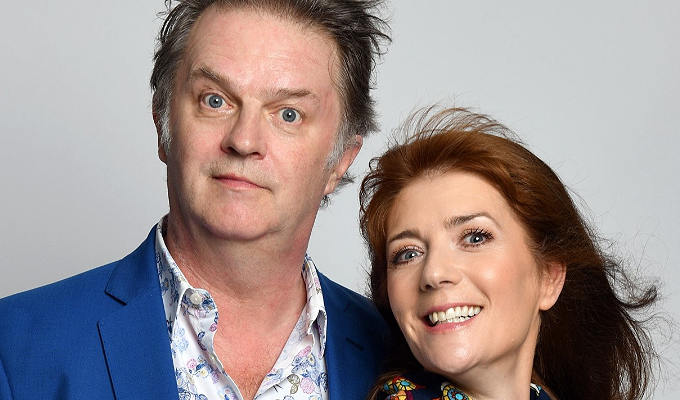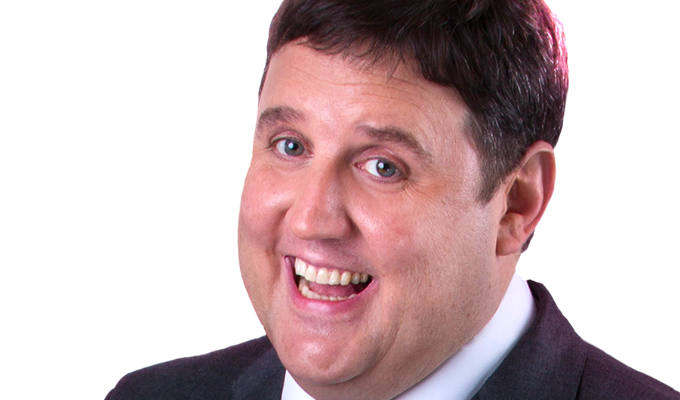
'Misery loves comedy'
Amnesty's Kate Allen on the marriage of humour and exposing human rights abuse
Opposites attract. So goes the saying, and you can’t get more seemingly contradictory than the serious, harrowing work of exposing human rights abuse and rip-roaring comedy.
Yet Amnesty’s association with humour is not new. In fact, it is what we are known for. The Secret Policeman’s Ball is a big part of our heritage and we have got a long tradition of being supported, not to mention cheered up, by a glowing list of the finest funny people in the business. And we’ve been in Edinburgh at the world’s largest arts festival for nearly two decades.
Yet if at first the relationship between work to combat grave human rights abuses and having a good laugh seems an unlikely one, there’s a rationale behind the mismatch. Freedom of expression is one of the first things to be clamped down on in repressive societies and comedians understand more than most the importance of being able to say what you want without fear of reprisals.
There are, though, places in the world where people are deemed to be dangerously funny. In 2010 we highlighted the case of a Burmese comedian named Zarganar. He was eventually released after serving part of a 35-year sentence for ‘causing public alarm’ after he had made jokes about the government’s dismal response to a devastating cyclone and generally made a nuisance of himself by criticising the ruling military junta. His imprisonment typifies the fact that comedians are very often a target for retribution. To an authoritarian government they can be irritatingly popular.
Zarganar’s not alone in being shut up because he wouldn’t… er, shut up. Just days before the Edinburgh Fringe kicked off last year Abdi Jeylani Malaq, a popular Somali comedian, was shot dead by two men armed with pistols as he entered his home in Mogadishu. It is thought he was killed by al-Shabab, the Islamist armed group, as he had recently mocked an al-Shabab commander and had received death threats from the group in the past.
Then of course, there are the punks. Last year at Edinburgh people went neon crazy to raise the profile of Russian punk band Pussy Riot. They, you’ll recall, had performed a protest song called Virgin Mary, Redeem Us Of Putin in a cathedral in Moscow, with several group members covering their faces in trademark balaclavas. The song called on the Virgin Mary to become a feminist and banish Vladimir Putin. It also criticised the support shown to Putin by some representatives of the Russian Orthodox Church. Feisty stuff, then.
Amnesty declared three of the band’s members; Maria Alekhina, Nadezhda Tolokonnikova and Ekaterina Samutsevich, prisoners of conscience after they were charged with ‘hooliganism’ and although Eketerina was later released on appeal, Maria and Nadezdha are still only halfway through their two-year jail terms.
Laughable, perhaps, that for a president with such a painstakingly cultivated machismo image, Vladimir Putin appears rather worried about the critical voices of journalists, campaigners and even musicians. Yet the absurd sentences meted out to the singers simply for having mocked their President are far from amusing - the two remaining band members in prison are being held in labour camps far away from one another, and far from their young families. We will be protesting against their detention on Edinburgh’s cobbled streets again this year.
There is something about the juxtaposition of comedy and serious work to prevent injustice, as absurd as it is wonderful, that has always tickled me. Perhaps it’s a peculiarly British thing.
From the macabre humour of our Second World War songs, to the Secret Policeman’s Ball and modern day institutions such as Comic Relief, misery loves comedy. This year we’re donning ‘taches and ‘flasher macs’ as the Secret Policeman makes his debut at the Fringe, with 15 live shows at The Underbelly throughout August.
The hosts announced so far include Julian Clary (in Edinburgh exclusively for Amnesty), Alan Davies and Ed Byrne, and along with stand-up and other larks, they’ll be talking about the right to speak your mind, as opposed to minding your speech, and reveling in the fact that in Edinburgh none of the stand-ups is in danger of anything worse than a good heckling.
• Kate Allen is the director of Amnesty International UK. Amnesty’s Secret Comedy Podcast is on at the Underbelly Bristo Square at 13:20, Thursdays to Sundays, during the Edinburgh Fringe. Tickets. Here is Joel Dommett in an Amnesty video:
Published: 13 Jul 2013






